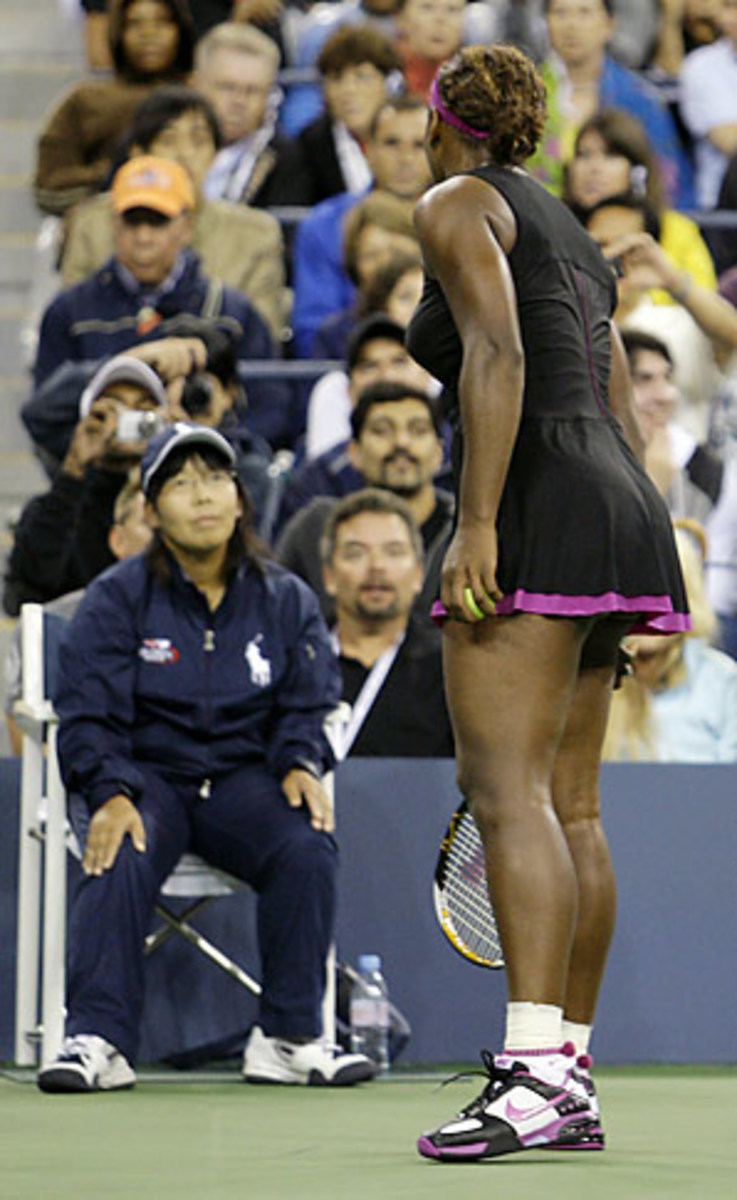Women's sports has seen its ups and downs in the 2000s
This was going to be the decade of deliverance for women athletes. Instead, the "aughts" have been naughts in many ways.
The 20th century ended full of promise and possibility for the female sports world. The 1999 World Cup was an historic, astonishingly successful event, with some of the largest stadiums in the world packed to the brim to see women play soccer and with television ratings soaring to unexpected heights.
The '90s were a period of breakthroughs for female sports figures, when the seeds of Title IX seemed to finally be bearing fruit. Professional leagues were launched. Women athletes captured the public's imagination. The 1996 Atlanta Olympics were dominated, in large part, by images of women.
But 10 years later, women seem to be stuck -- for a variety of reasons.
The economy has been rough on many sports, especially new, untested leagues -- which are by definition women's leagues. The WNBA is retracting. The WUSA folded early and its scaled down successor, the WPS, is struggling. The LPGA is hurting.
A reduction in mainstream media has led to fewer female voices in the nation's newspapers, and much of the new media is -- unfortunately -- recreating a kind of 1960s "Mad Men" era when it comes to what sports get noticed.
And young women who came of age in the glory days of the '90s too often take their athletic birthright for granted. They haven't worked as hard to sell their sport, to build support. Many of them couldn't even tell you what Title IX is.
The 2000s opened with tremendous promise. In Sydney, the biggest story -- by far -- was Marion Jones and her quest for five gold medals. A decade later, Jones is still one of the biggest stories in women's sports: the first big-time drug cheat of her gender. A woman who was busted after choosing to cheat for fame and fortune (not because her country demanded it, like the case of East Germans of 30 years ago).
In a way, Jones marks a breakthrough. This was the decade that women's sports proved it doesn't hold any moral high ground over its male counterpart. Women athletes have doped, made poor decisions and behaved badly -- just like the men.
Serena Williams ended her decade of dominance with an on-court meltdown worthy of John McEnroe. The heirs to the champion 1999 World Cup team had an ugly rift in 2007, when goalie Hope Solo publicly complained about being benched and then was ostracized by her own teammates. That team came back to win Olympic gold in 2008, but its celebration wasn't quite as unified and sweet as the one eight years earlier.
In some cases it was a decade where there was plenty of hype, but not much follow through. Michelle Wie was going to be the next big thing in golf, but spent most of her energy trying unsuccessfully to compete in PGA events without proving herself on the LPGA tour. Late in 2009 -- after making headlines for much of the decade -- Wie finally won her first professional LPGA event. Maria Sharapova became one of the highest paid athletes of the decade but her tennis has been erratic in recent years.
Still, at every level, in every sport, women athletes pushed the boundaries, increased the skill level. Participation is up, talent is everywhere. The UConn basketball team spent the decade dominating its sport, winning five titles. Individual athletes like Natalie Coughlin, Lindsey Vonn and Kelly Clark pushed their sports to new levels.
And the decade's dominant athlete, Williams, changed perceptions about women athletes. Powerful and feminine, Williams dominated on the court with 11 major titles. She dominated at the bank, shattering tour record earnings with $6.5 million in 2009. And she rattled stereotypes about women athletes with her very bad behavior at the U.S. Open last September.
The lasting image of the '90s for women athletes was one of a championship team, adored by millions. The lasting image of the past decade was Williams unloading on a linesperson at the U.S. Open.
Progress? Maybe in a weird way. But not the kind you'd hope for.






